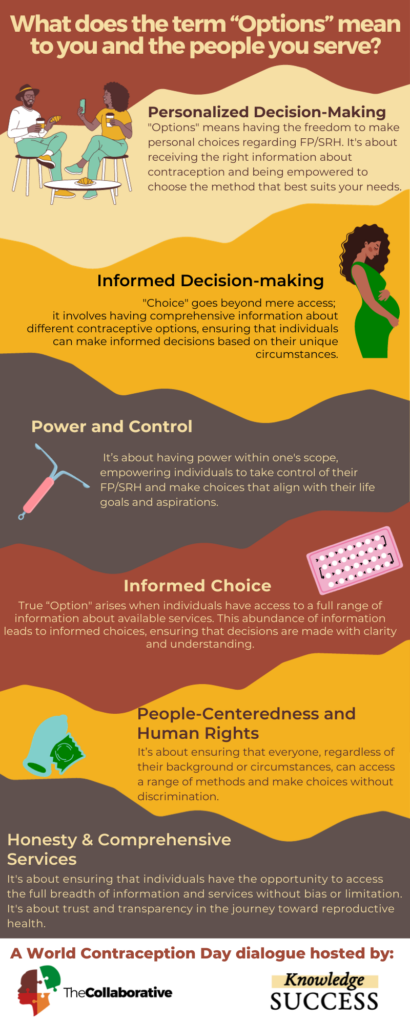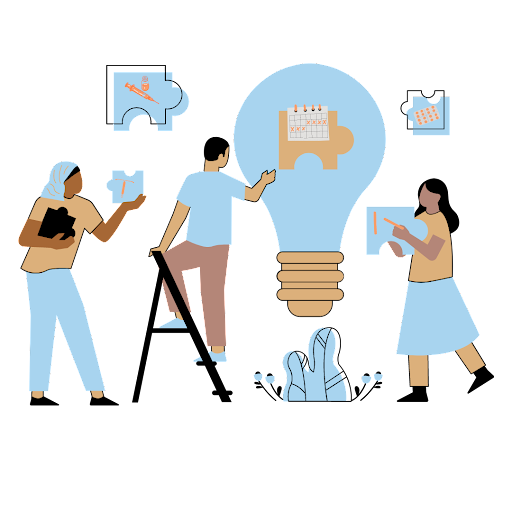Personalized Decision-Making
One member highlighted that “Options” means having the freedom to make personal choices regarding Family Planning and Sexual and Reproductive Health (FP/SRH). It’s about receiving the right information about contraception and being empowered to choose the method that best suits your needs and preferences.
Informed Decision-Making
Another perspective emphasized the importance of informed decision-making. For this member, “Choice” goes beyond mere access; it involves having comprehensive information and education about different contraceptive options. It’s about ensuring that individuals can make informed decisions based on their unique circumstances.
Power and Control
One member added a compelling dimension, stating that “Option” means having power within one’s scope. It’s about empowering individuals to take control of their reproductive health and make choices that align with their life goals and aspirations.
Informed Choice
“Options” and “Informed Choice” go hand in hand. As another member pointed out, true “Option” arises when individuals have access to a full range of information about available services. This abundance of information leads to informed choices, ensuring that decisions are made with clarity and understanding.
People-Centeredness and Health Rights
Options underscore the principles of people-centeredness and health rights. It’s about ensuring that everyone, regardless of their background or circumstances, can access a range of methods and make choices without discrimination.
Honesty and Comprehensive Services
Finally, “Options” boil down to honesty. It’s about ensuring that individuals have the opportunity to access the full breadth of information and services without bias or limitation. It’s about trust and transparency in the journey toward reproductive health.
As we reflect on the wisdom shared by members of theCollaborative, it’s evident that “Options” in the world of FP/SRH mean so much more than just having a choice of contraceptives. It’s about empowerment, education, personalization, and inclusivity. It’s about fostering a world where individuals are in control of their reproductive destinies, where choices are informed, and where everyone has equal access to comprehensive services.









